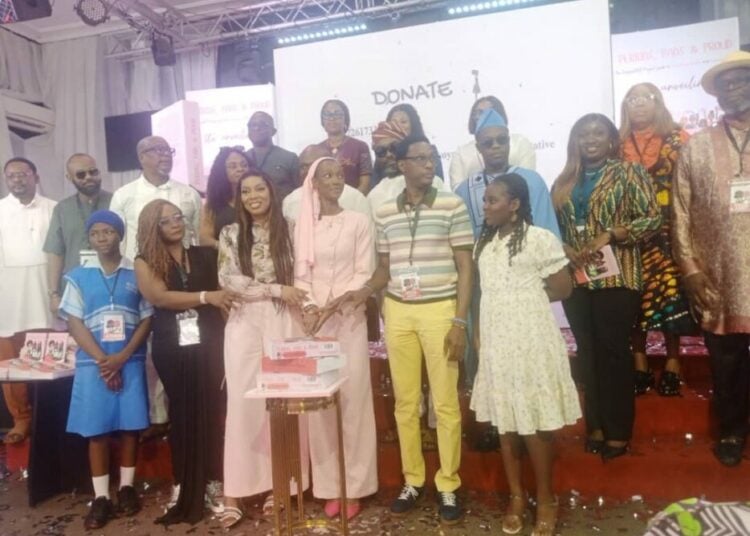A non-profit organisation, The EmpowerHer Project, has donated over 3,000 free menstrual products to second-grade schools in Nigeria.
The NGO advocated for the inclusion of menstrual health into the school curriculum across the country.
Its founder, Elizabeth Aderonke Odukoya, made the call at the unveiling of a book titled ‘Periods, Pads and Proud’ in Port Harcourt, River State.
The EmpowHER Project is dedicated to empowering Nigerian secondary school girls by ensuring equal access to menstrual health resources, quality education, and support for their personal and academic success.
Odukoya said the NGO, backed by a growing network of 60 passionate volunteers, including students and medical professionals, is advocating the importance of menstrual health.
She said that the NGO is also working with schools and local authorities to integrate menstrual health into school curricula and also advocating for a future where no girl will miss school, feel ashamed, or lack the resources she needs simply because of her period.
She pointed out that the NGO has reached out to more than 3000 girls across 11 schools and communities in Nigeria, delivering interactive health talks, distributing over 3000 free menstrual products and promoting sustainable, reusable sanitary pads as a long-term and eco-friendly solution.
Speaking at the event, Dr Chinedu Nwaodu, director of quality assurance at the Rivers State Ministry of Education, urged young girls, parents, and teachers to take menstrual health seriously.
Dr Nwaodu said all the secondary schools in Rivers State are equipped with relevant facilities to educate the girl child about menstrual health.
Reviewing the book, Professor Kaladada Korubo, a Professor of Haematology in the College of Medical Science, Rivers State University, said the book throws more light on what the female genital system is all about and talks about what menses and period actually mean.
She noted that the book explained manque, the very first time a girl has her period.
“So, the advantage is that knowledge is power, so for that little girl who doesn’t know anything about menses, having read this book, that little girl is going to know it all. Some of us as mothers have never even discussed menses, period, with our girl child. We just wait. We start observing the child when the child is about 9, 10 years old,” she said.











